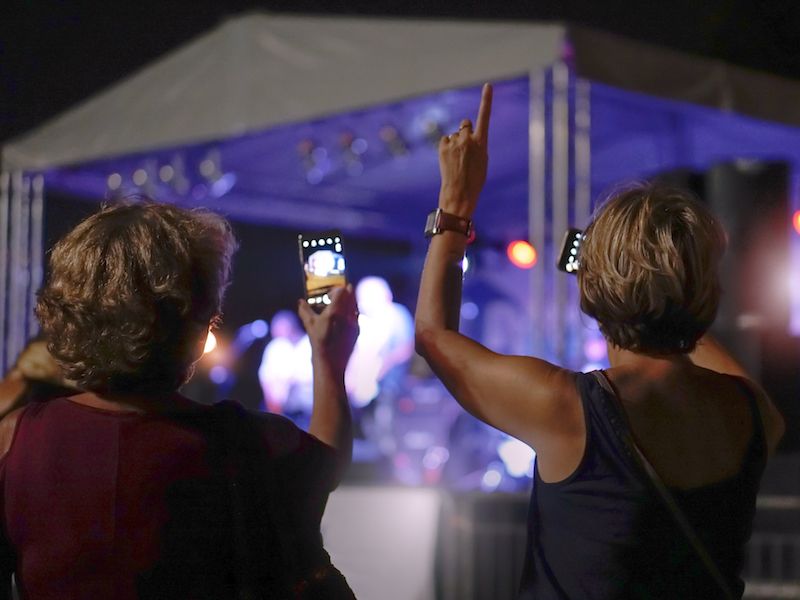
We’ve been looking forward to summer activities all year: swimming in the pool, visiting the beach, and a few activities that might harm your ears. You may find yourself in environmental situations or subjected to other loud sounds this summer that are hidden dangers to your hearing. Any sounds over 80 decibels can lead to harm to your hearing, while swimming in pools or other bodies of water can result in irreversible hearing loss. You have to take precautions and be aware of your environment in order to keep your hearing safe this summer. Keep reading to discover the summer’s six hidden threats to your hearing.
When You’re at Concerts, Wear Ear Protection
Whether you’re at an indoor stadium or an outdoor concert venue you still should wear ear protection during live music. Concerts can have volumes over 90 decibels, even at outdoor concerts, which is inside the danger zone of hearing loss. That’s the reason it’s always a smart strategy to wear earplugs whether you’re seeing a show indoors or outdoors. Earplugs reduce the sound while still enabling you to hear and enjoy the music. If you’re bringing young children to a show, think about getting them a heavy duty pair of earmuffs because children have more vulnerable hearing than adults.
Fireworks Can Damage Your Ears
Honestly, there are a lot of reasons to avoid fireworks in the summer. We’re not talking about the specialized 4th of July displays, we mean the backyard fireworks that bring about hundreds of injuries during the summer season. On top of causing hand traumas, loss of sight, and home fires, personal fireworks can also result in severe harm to your hearing since they’re known to get to decibel levels of 155. This 4th of July, leave the fireworks to the professionals and enjoy the display from a protected and sound distance.
Loss of Hearing Can be Brought About by Lawnmowers
If you’re serious about your lawn, most likely you’re out there each week on your mower, trimming your bushes and using your edger. But have you ever noted how off your ears feel after you finish, making everything sound muffled? That’s because the lawn tools, which are constantly loud, impact your hearing over time. Maybe you’ve noticed lawn professionals wearing some kind of hearing protection, next time you work on your yard with noisy power equipment, you should take a cue from them and wear earmuffs or earplugs.
Hears How to Safeguard Your Ears When You Take a Swim
Huge numbers of people suffer from swimmer’s ear each summer, which happens when the ear canal traps water which has lots of bacteria. The bacteria will then infect the ear, triggering painful earaches and swelling. It’s not exclusively rivers and lakes that contain these bacteria, they can sometimes be found in pools and hot tubs if they aren’t cleaned and treated correctly. No lasting injury should happen if you get your ears checked out by a hearing expert. To be safe, when your swimming in your pool, use specialized swimmers earplugs and keep the chemical balance precise to lessen the chance of getting swimmers ear.
Water Sports And Boats
If you love the water, summer is beach and boating time for you. But, boat and jet ski engines are usually loud,we’re talking more than 100 decibels. Continual exposure to that much noise for about 15 minutes can bring about permanent hearing damage. In this circumstance also, putting on a pair of disposable foam earplugs is a smart plan.
Car Races Can Injure Your Hearing
It doesn’t make a difference what kind of auto racing you like, stock cars, midgets, motorcycles, drag racing, Formula 1. If you attend a lot of auto-races this year, they all pose a danger. 120 dB is well within the danger zone for hearing loss and many races go way above this. Earplugs are your best friends at these races, while your kids should definitely wear the earmuffs which were mentioned earlier. If not, you may not get to enjoy the sound of those engines as you get older.